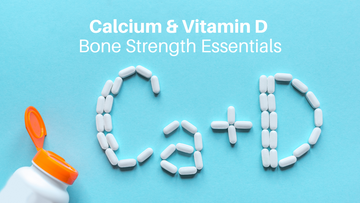Diarrhea is a common ailment that affects individuals across all age groups and demographics. While it is often considered a minor inconvenience, its impact can range from mild discomfort to severe dehydration, making it essential to know how to manage and treat it effectively. Understanding the causes, symptoms, and treatments for diarrhea can significantly speed up recovery and prevent recurrences.
In this comprehensive blog, we will delve into the nitty-gritty of diarrhea, from its primary causes to effective treatments and home remedies. Whether you're experiencing this condition yourself or caring for someone who is, this guide will equip you with the knowledge and tools you need to stop diarrhea in its tracks.
Also Read: Exploring the Difference Between Ayurveda and Homeopathy
What Is Diarrhea Disease?
Diarrhea is defined as the condition of having three or more loose or liquid bowel movements per day. It usually lasts a few days and can result in dehydration due to excessive fluid loss. The fluids lost contain vital salts and minerals essential for bodily functions, making prompt treatment crucial. Diarrhea can be acute, lasting one or two days, or chronic, lasting over four weeks and indicating a more serious underlying health issue.
The onset of diarrhea is often sudden and can be accompanied by abdominal cramps, nausea, and bloating. Chronic diarrhea may suggest an underlying gastrointestinal condition such as Irritable Bowel Syndrome (IBS) or Crohn's disease.
What Are the Main Causes Of Diarrhea?
1. Infectious Agents
Bacterial Infections: Bacteria such as E. coli, Salmonella, Shigella, and Campylobacter can cause severe diarrhea. These bacteria are usually ingested through contaminated food or water.
Viral Infections: Viruses like norovirus and rotavirus are common agents causing viral gastroenteritis, which leads to diarrhea. These viruses are highly contagious and can spread rapidly.
Parasitic Infections: Parasites like Giardia, Cryptosporidium, and Entamoeba histolytica can cause prolonged diarrhea, especially in individuals with compromised immune systems.
2. Food Intolerances
Lactose Intolerance: This occurs when the body lacks the enzyme lactase, which is needed to digest lactose found in dairy products. This intolerance can cause bloating, gas, and diarrhea.
Gluten Sensitivity: Also known as celiac disease, this condition triggers an immune response in the small intestine upon the ingestion of gluten, leading to diarrhea and malabsorption of nutrients.
Fructose Malabsorption: Some individuals are unable to properly absorb fructose, a sugar found in fruits, which can lead to gastrointestinal symptoms, including diarrhea.
3. Medications
Antibiotics: While antibiotics fight bacterial infections, they can also disrupt the natural balance of good bacteria in the intestine, potentially causing antibiotic-associated diarrhea.
Antacids Containing Magnesium: Some antacids used to neutralize stomach acid include magnesium, which can act as a laxative and result in diarrhea.
Chemotherapy Drugs: Certain drugs used in cancer treatment can irritate the digestive tract and disrupt its functioning, leading to diarrhea.
4. Digestive Disorders
Irritable Bowel Syndrome (IBS): IBS is a functional disorder of the intestine characterized by alternating periods of constipation and diarrhea, often triggered by stress or certain foods.
Crohn's Disease: This chronic inflammatory condition affects the lining of the digestive tract and can cause severe, persistent diarrhea, along with abdominal pain and weight loss.
Ulcerative Colitis: Similar to Crohn's disease, ulcerative colitis involves inflammation of the colon lining, resulting in frequent, urgent bowel movements and bloody diarrhea.
Also Read: How to Boost Immune System: Strengthen Your Body's Defense
Symptoms Of Diarrhea
1. Loose, Watery Stools
One of the most obvious symptoms of diarrhea is the frequent passage of loose, watery stools. This symptom is often accompanied by a sense of urgency and the need to use the bathroom multiple times a day, disrupting daily activities.
2. Abdominal Cramps
Many people with diarrhea experience sharp, painful cramps in their abdomen. These cramps are due to increased intestinal contractions trying to expel the irritant. The pain can be intense and may come in waves, often exacerbating after eating.
3. Nausea and Vomiting
Diarrhea often comes with nausea and vomiting. Because the digestive system is in distress, it may try to purge itself through both the lower and upper pathways. This can make it challenging to keep down liquids and food, further increasing the risk of dehydration.
4. Dehydration
Excessive fluid loss from diarrhea can lead to dehydration. Symptoms of dehydration include dry mouth, light-headedness, and decreased urine output. In severe cases, dehydration can cause confusion, rapid heart rate, and even loss of consciousness, necessitating immediate medical attention.
Also Read: Weak Immune System Symptoms: Understanding and Addressing the Signs
Diarrhea Treatment
1. Rehydration
Oral Rehydration Solutions (ORS): ORS are specially formulated drinks that contain the right balance of salts and sugars to help the body absorb fluids more effectively. They are readily available over-the-counter and are an essential first step in treating diarrhea.
Intravenous Fluids: In cases of severe dehydration where oral intake is not possible, intravenous (IV) fluids may be administered in a medical setting to quickly restore hydration levels.
2. Over-the-Counter Medications
Loperamide (Imodium): This anti-diarrheal medication works by slowing down intestinal movement, allowing more water to be absorbed and stools to become firmer. However, it should not be used if the diarrhea is caused by a bacterial infection, as it can retain harmful bacteria in the gut.
Bismuth Subsalicylate (Pepto-Bismol): This medication helps reduce the frequency of diarrhea and has antimicrobial properties that can treat mild bacterial infections.
3. Antibiotics
Tailored Antibiotics: For bacterial infections confirmed through stool tests, specific antibiotics may be prescribed to target the pathogen involved. It's crucial to complete the prescribed course to eliminate the infection fully.
4. Dietary Adjustments
BRAT Diet: The BRAT diet (Bananas, Rice, Applesauce, Toast) is commonly recommended during acute diarrhea episodes. These foods are bland, low in fiber, and help make stools firmer.
Avoiding Irritants: It is essential to avoid caffeine, alcohol, fatty foods, and dairy products during diarrhea, as they can exacerbate symptoms.
Diarrhea Remedies
1. Probiotics
Yogurt: Rich in beneficial bacteria like Lactobacillus, yogurt can help restore the microbial balance in the gut. Opt for plain, unsweetened yogurt to avoid added sugars.
Probiotic Supplements: Available in capsule or powder form, these supplements can replenish good bacteria in the digestive system and help shorten the duration of diarrhea.
2. Herbal Teas
Chamomile Tea: Known for its anti-inflammatory and antispasmodic properties, chamomile tea can soothe the digestive tract and reduce cramping and discomfort.
Ginger Tea: Ginger has natural anti-nausea properties and can help reduce symptoms of vomiting and diarrhea.
Peppermint Tea: Peppermint relaxes the muscles in the gastrointestinal tract, reducing spasms and easing symptoms.
3. Hydration Solutions
Homemade Rehydration Solution: A simple rehydration solution can be made by mixing 1 liter of water with 6 teaspoons of sugar and 1/2 teaspoon of salt. This can be sipped throughout the day to replace lost fluids and electrolytes.
4. Psyllium Husk
Fiber Supplement: Psyllium husk is a soluble fiber that absorbs water and can help bulk up stool. It's available as a powder that can be mixed with water or juice.
Also Read: Boosting Your Immune System and Heart Health: A Holistic Approach
Conclusion
Diarrhea, while common, is a condition that should not be taken lightly. It can lead to severe dehydration and other complications if not properly managed. Understanding what causes diarrhea and recognizing its symptoms are the first steps toward effective treatment. Over-the-counter medications, rehydration solutions, and dietary changes can bring quick relief. Additionally, natural remedies like probiotics and herbal teas can be beneficial in managing symptoms and preventing future episodes.
In summary, dealing with diarrhea requires a multi-pronged approach that includes conventional medical treatments and natural remedies. While it can be uncomfortable and inconvenient, knowing how to treat diarrhea effectively can alleviate symptoms and accelerate recovery. Always consult a healthcare provider for persistent or severe cases to ensure there are no underlying health issues. With the right knowledge and resources, managing diarrhea is entirely achievable, helping you return to your normal routine as soon as possible.












